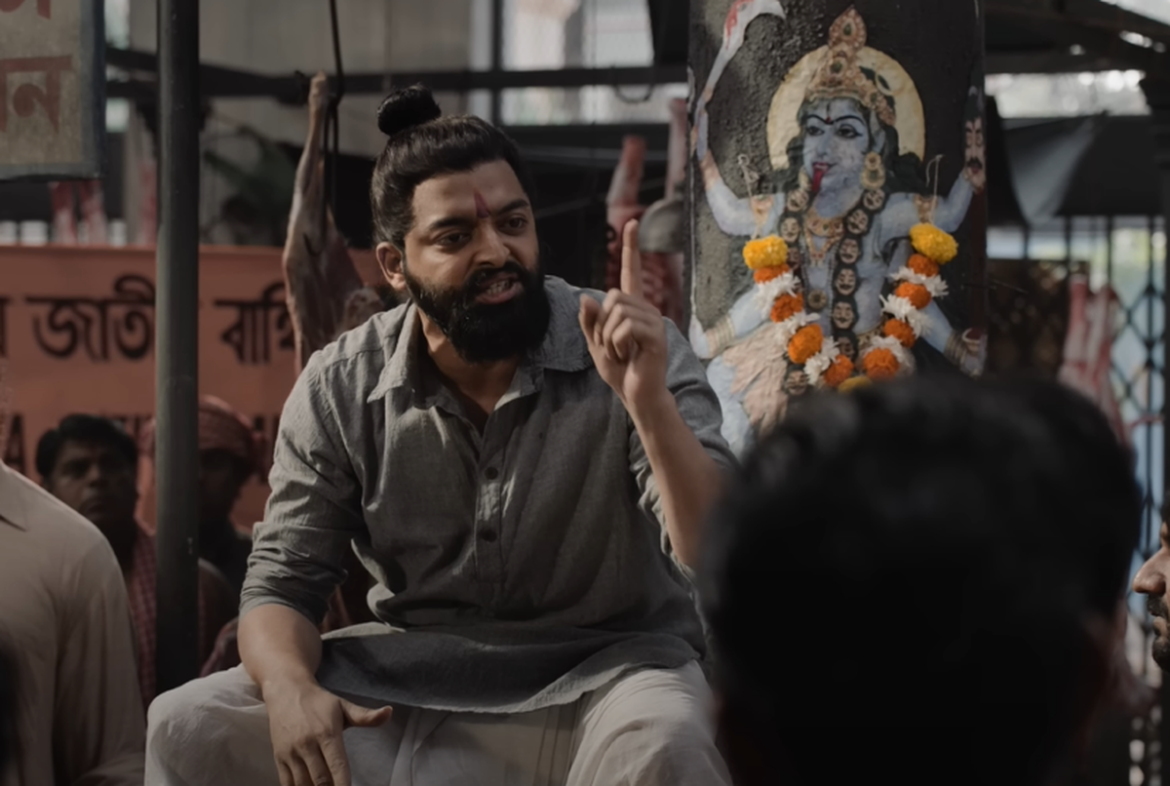Partition Pain:
There are conflicting schools of thought – one says that there is no need to portray past historical wrongs in cinema, so that peace can be maintained; others say that if stories about the tragic Partition of India had been told more often on screen, it might have been possible to heal those old wounds.
The idea behind Vivek Ranjan Agnihotri’s The Bengal Files comes in a throwaway line at the end of the film, when a Muslim militant, conducting planned and brutal massacres of Hindus in Bengal, says that the Partition is not the end, and uses the word “unfinished business” for what he has been doing.
The film moves from the period just before Partition, when Jinnah’s obduracy led to the division of India on religious lines. What happened in Punjab has come up in many films, the horrific stories of Bengal, not so much. In The Bengal Files, focuses on the awful carnage that is now called Direct Action Day, in which, pro-Partition politician Suhrawardy engineered a bloodbath unleashed by followers of the Muslim League and the National Guard, that left thousands dead. The director does not spare the audience the merciless savagery – people stabbed, shot, burnt, women strung up in a slaughterhouse like chattel. The man who leads the murderous mobs is Ghulam (Namashi Chakraborty). He beheads one of the men who resists him and holds up his head to show the cowering people what he is capable of. Caught in the midst of the genocide is Bharti Banerjee (Simratt Kaur Randhawa) and a Sikh soldier, Amar (Eklavya Sood), who bring out a newspaper and try to help the victims.
The fiery Gopal Patha (Sourav Das) makes an appearance, who refuses to lay down arms on Gandhi’s non-violence appeal and exhorts Hindus to fight back. Suhrawardy (Mohan Kapur) passes on the Butcher of Bengal label on to Patha, abdicating his own role in pouring fuel in the fire by ordering the cops not to take any action, and forbidding businessmen to help Hindus. Gandhi is seen as weak and his call for non violence, ineffective against the marauding mobs. When asked about the women being raped, Gandhi suggests that for them, committing suicide would be an act of true courage.
The Great Calcutta Killings did happen and Noakhali did burn, but Agnihotri links it to the present, when a CBI officer, Shiva Pandit (Darshan Kumaar), who had suffered the violent forced exodus of Hindus from Kashmir, is sent to Murshidabad in West Bengal to investigate the disappearance of a Dalit journalist, Geeta Mandal. An aged, frail and dementia-afflicted Bharti (Pallavi Joshi) has been picked up on suspicion of complicity, since Geeta lived in her house.
The town is ruled by the hate-spewing Sardar Husseini (Saswata Chatterjee), who the local cops are afraid of and politicians in Delhi want to appease. Shiva hears Bharti recalling the ordeal of the past, while in the present, his hands are tied by his boss (Puneet Issar), who fears that action against Sardar would trigger communal riots.
A policeman (Mithun Chakraborty), who had dared to take on the might of Sardar found his tongue cut off. He hovers around Shiv, lamenting the loss of justice for “we, the people.”
To Shiva, Sardar presents a picture of sophistication—his wife, he points out, does not wear a burqa and runs a business. His blank-looking son is made to recite Tagore. But his menace hangs over the town. Geeta is forgotten for a large part of the film, as Shiv tries to understand what he is up against. Shiv finds that Sardar smuggles Bangladeshis across the border, gets fake citizenship papers for them, creates a vote bank for himself, and is changing the demographic of the state. Like Ghulam in 1946, Sardar can mobilize “goonda for hire,” and use violence to silence opposition.
Shiv has the personal experience of the Kashmir nightmare when he sees how politicians like Sardar hold the fear of communal violence like swords over the heads of innocent people – read, Hindus, in Bengal. “Ghulam is alive,” says a tremulous old Bharti, indicating that even today, political leaders are using religion to divide people.
Any number of films have shown politicians and gangsters weaponizing religion, but because Agnihotri states it upfront, it does have the effect of inflaming rather than cooling the spurts of hate that are periodically fanned by politicians, particularly at the time of elections. In The Bengal Files too, there is mention of imminent elections, that are the catalyst for the incidents in the present.
The success of the earlier two films of the Files trilogy, and flaming controversy they generated have given Agnihotri a voice that is heard, and a certain sway over the opinions of a section of the audience, who may not have formed their own by a calm reading and understanding of history. A little information can be a dangerous thing, and the conspiracy theories floated on Whatsapp groups can grow roots if endorsed by a well-made film like The Bengal Files.
There is no denying that some of the issues that Agnihotri raises are valid, but today, the need of the hour is to find ways of negotiating peace not pouring oil over troubled waters.
(This piece first appeared in rediff.com)

